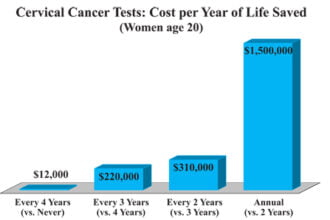Industry and medicine are permanently linked together–like it or not. Attempts to separate them are fraught with difficulties. Certainly, physicians should have no financial incentives to use any particular product or drug. Choices of therapy should be based on available data and on what the best treatment for a particular patient may be. Medical device companies and pharmaceutical corporations have long spent millions of dollars trying to persuade physicians to use a particular product.
Industry and medicine are permanently linked together–like it or not. Attempts to separate them are fraught with difficulties. Certainly, physicians should have no financial incentives to use any particular product or drug. Choices of therapy should be based on available data and on what the best treatment for a particular patient may be. Medical device companies and pharmaceutical corporations have long spent millions of dollars trying to persuade physicians to use a particular product. In the past, lavish dinners and trips to faraway destinations were the norm. In the last 10 years, reforms and government regulations have nearly eliminated these types of activities. However, in spite of their past “less than upstanding” behavior with physicians, industry is an important source of research and research funding for medical science. Industry sponsored studies (although often self serving) can provide important data that guide our treatment decisions in complex situations. In fact, many research studies have changed the way we approach certain diseases and have resulted in better outcomes and quality of life for our patients.
Recently, an article appeared in the New York Times addressing the role of industry in medicine. The piece has troubled me ever since I read it and I have spent the last week carefully planning my words for this blog. In the Times, author Roni Rabin, relates a story of a patient who died after a surgeon used a particular new technology in the operating room during a routine procedure. The surgeon had been trained on the new tool by an industry sponsored “crash course”–common in the the medical device industry. The sales representatives for the company’s technology (as evidenced by emails made public in court proceedings) applied pressure on the surgeon to use their device and even attempted to manipulate surgical schedules in order to meet predefined sales quotas by the end of the quarter. Ultimately the patient had complications during the case and died. Here, sales and the bottom line of the business became the focus instead of the patient. The surgeon was “trained” by the company’s standards–not those of the medical community or any academic or FDA regulation or standard. In fact, company emails even commented “don’t let credentialing of [the doctor] get in the way”.
These business “sales first” attitudes have given all of industry a bad name. (Like Bon Jovi and Love.) Ultimately, these types of behaviors have hurt patients, tarnished reputations and put physicians in compromising positions (many without even realizing it). We must find better ways to police the actions of industry sales personnel while at the same time working with them to improve care. Many hospitals have a strict “credentialing” program for sales representatives and require them to produce training certification and check in with a secure badge upon entering the facility. Many hospitals require reps to wear red colored surgical caps so that they are clearly identified. As I mentioned earlier, company support is often essential when using implantable technology and improving the science of medicine through research. However, physicians must also be mindful of the fact that ultimately these folks are there to produce sales. As physicians we are held accountable for quality and standard of care. Salespeople are held accountable for the bottom line. As physicians, we have trained for many years to be considered competent in our specialties–therefore we should certainly feel a little strange when a company says that they can train you to implant a new medical device or use a new technology during a weekend “crash course” in Mexico. We must carefully evaluate new technology and ensure that we all have a good understanding of it before venturing out into the world to use it on patients without supervision. I believe that comprehensive proctored training by competent experts is the best way to train physicians in new technology. It should be the opinion of the proctor–not the company–as to when the physician is properly trained and ready to proceed. Hospital credentialing committees should require careful documentation of legitimate proctored training prior to allowing a physician use a new device or technique independently.
As I mentioned at the outset, this blog topic has troubled me for weeks. I firmly believe that industry must play a role in the care of patients through research and development of new technologies. However, it may be best if the personnel in the OR representing the company have no vested interest in sales. These individuals should be trained as engineers and should be compensated in a different manner than the commission driven sales representative. Physicians and credentialing committees must look carefully at how new procedures and technologies are brought into the hospital and how operators are trained. It may be that industry can pay for the training but not be directly involved in the proctoring or certification process. Food for thought…








